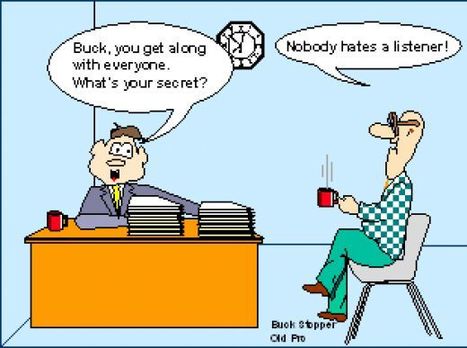Most people like to think what they have to say is important. If you or I make the effort to share thoughts, feelings, or knowledge, then we want to believe the intended recipient is listening. But honestly, many people are too distracted to really take it all in when someone else is doing the talking. What's worse is that so many just watch mouths move, waiting for the chance to chime in.
Great leaders understand the value of active listening and get the most benefit from what others have to share. They understand that if you want to be heard and understood, the first step is learning how to listen yourself. The following are actions shared by those who truly know how to listen. Integrate them into your conversational behavior and you might be surprised what you learn.
Via The Learning Factor, Capability Development (JC)



 Your new post is loading...
Your new post is loading...












Everyone wants to be heard. But not everyone knows how to truly listen. Here's how amazing listeners use those odd things on the sides of their heads.
Truly listening to someone is a great gift to give.
#distracted people just don't listen very well.